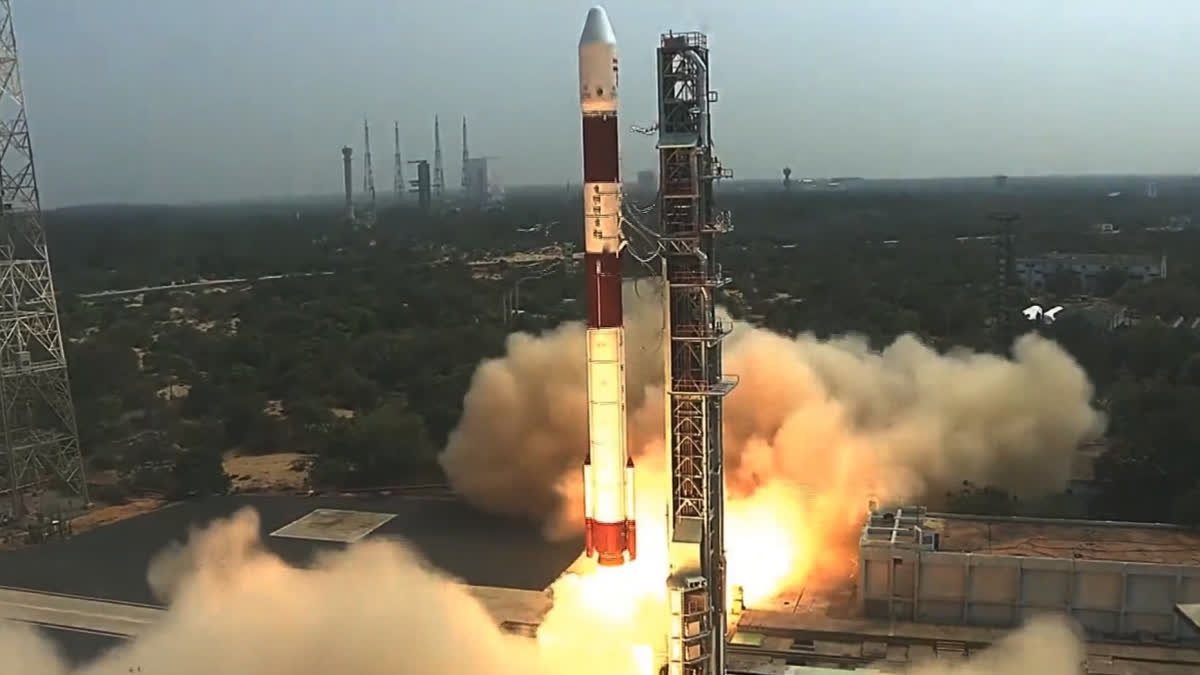Sriharikota (Andhra Pradesh): India on Saturday successfully placed into orbit TeLEOS-2 and Lumilite-4 satellites both from Singapore. With this latest rocketing success, the Indian Space Research Organisation (ISRO) has orbited 424 foreign satellites from 36 countries since 1999. Speaking about the mission Indian Space Research Organisation (ISRO) Chairman S. Somanath said: "The PSLV rocket has placed the satellites at the intended orbit. The PSLV has demonstrated its higher reliability."
Adding further Somanath said the ISRO team has done several new things to bring down the rocket's cost as the industry is gearing up manufacture. He said the rocket's upper stage on which seven non-separable payloads are fixed will be orbiting for a month and do the experiments. "For the first time, a deployable solar panel has been fixed on the upper stage," Somanath added.
The PSLV Core Alone variant rocket carrying the 741 kg synthetic aperture radar satellite TeLEOS-2 as the primary passenger and the 16 kg Lumilite-4, a technology demonstration nano satellite as the co-passenger blasted off from the first launch pad at Satish Dhawan Space Centre (SDSC) here at 2.20 p.m.
The rocketing on Saturday was made possible by NewSpace India Ltd-the commercial arm of India's Department of Space - by contracting with the two parties. These two satellites apart, there are seven non-separable experimental payloads which are part of the rocket's final stage (PS4). They belong to ISRO, Indian Institute of Space Science and Technology (IIST), Bellatrix Aerospace, Dhruva Space, and Indian Institute of Astrophysics.
The ISRO uses the final stage (PS4) of the PSLV rocket as an orbital platform for in-orbit experiments and has named it as PSLV Orbital Experimental Module (POEM). The four stage expendable, 44.4 m tall PSLV-C55 rocket weighing 228 ton slowly rose-up towards the skies from the first launchpad here with thick orange flame at its tail. The rocket gained speed as it went up while emitting a rolling thunder sound.
